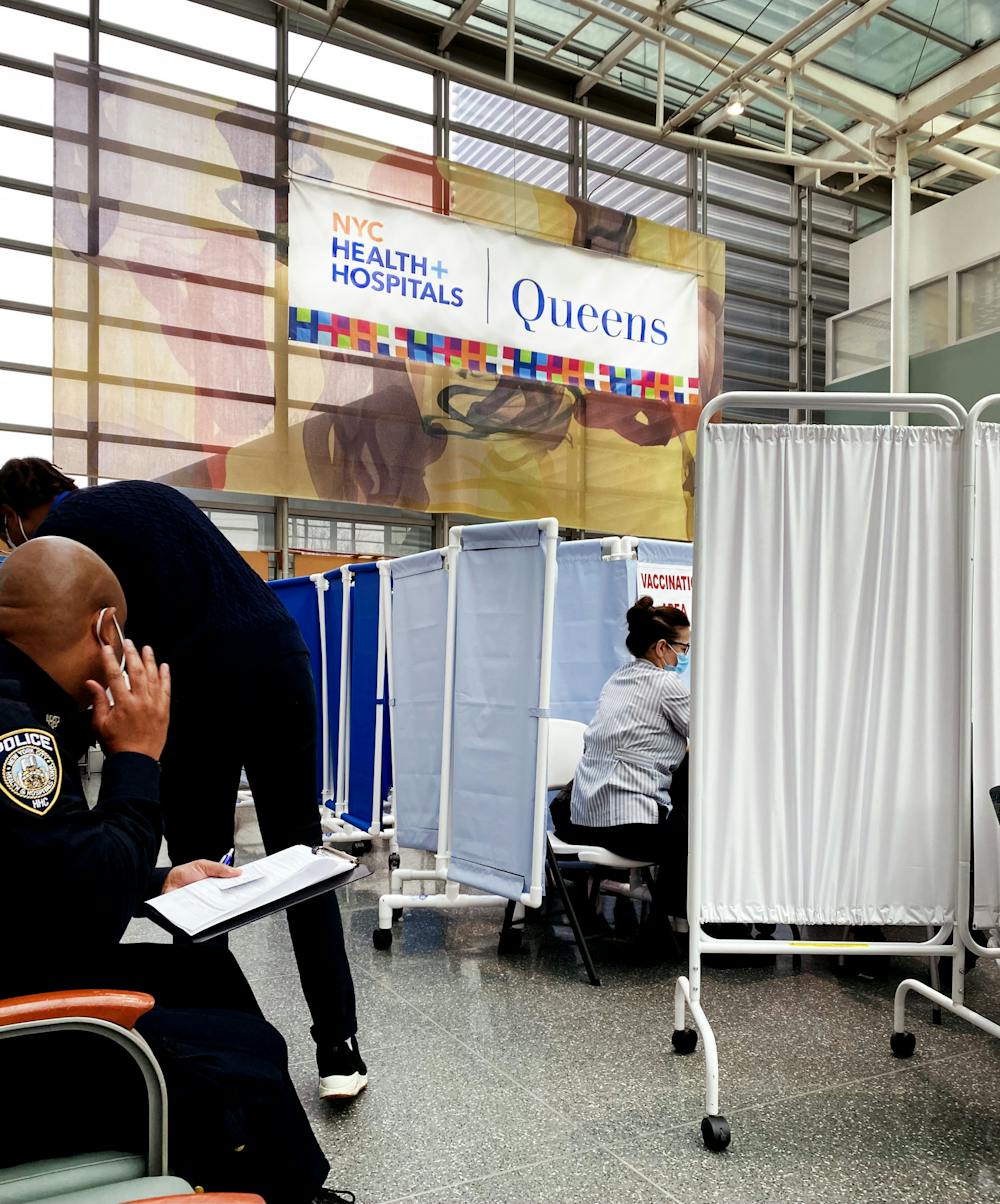By Emma Ferschweiler
Staff Writer
The U.S. now has access to three vaccines approved for use by the Food and Drug Administration (FDA) and Centers for Disease Control and Prevention (CDC). They are Johnson & Johnson, Moderna and Pfizer. As of now, Pfizer is the only company that has federal approval to administer a third dose of its mRNA vaccine to certain groups.
The approval came on Sept. 22 with the FDA giving Pfizer emergency power to administer a third round of Covid-19 injections to select groups. People who are deemed eligible are those 65 years of age or older, severely immunosuppressed or front-line workers with constant exposure to the virus.
It took the CDC an additional two days to make a similar announcement. The Advisory Committee on Immunization Practices, a committee specializing in disease prevention vaccines, agreed with most of the FDA’s decision but disapproved of its recommendation of boosters for people with severe exposure to Covid-19.
However, CDC Director Rochelle Walensky overruled this decision, ensuring the FDA and CDC are in alignment in terms of endorsement of boosters. Neither agency has weighed in on boosters for Moderna or Johnson & Johnson shots.
This additional protection against Covid-19 is meant to strengthen the already existing defenses found in the initial vaccines. Someone who is not already vaccinated would not be able to get the additional booster. Vaccinated people with strong immune systems may not require this added protection. However, those fitting the FDA and CDC’s eligible description may not be safe without the shot.
Associate Professor at the College of Nursing Dr. Tracy Perron teaches health across the lifespan as well as community public health to senior students in the spring semester. She said there is a lot of research and testing being done on the vaccines to ensure their safety, but there is still more to be known.
“The people are very concerned about how quickly the vaccine was made… that type of vaccine has been in production for a long time,” Perron said. “This isn’t something they just mixed up in a petri dish and see how it works. We’ve been working on this RNA vaccine for a very long time.”
Perron said there are still some questions that remain unanswered such as how much of a booster people will need because the situation is still early. For instance, the FDA is considering halving the Moderna vaccine dose because of its high potency, according to Perron.
“Every day something changes with the CDC and the federal government and local municipalities, so we’re just all trying to do the best we can to keep up with whatever science we have to back us,” Perron said.
President Joe Biden received his third inoculation on Sept. 27 in a live television broadcast to show his support for the treatment. A month before, he declared that every person vaccinated would be able to get a booster starting the week of Sept. 20. Biden’s proposal has yet to take off with the concurring recommendations of the FDA and CDC limiting these shots to select groups.
The rollout is largely dependent on each state’s guidance, local pharmacies and health providers. Walgreens has already issued a statement that it will begin administering boosters nationwide as of Sept. 24 in addition to CVS, Walmart and other suppliers.
Currently, people must get a booster from the same company that they first received a vaccine from. Perron said this is to limit adverse reactions to the virus. While the groups eligible for boosters are limited, Perron said for some of these distribution sites they are not asking for credentials.
“They’re sort of going more on the honors system. Most of the people looking to get a booster are in need of that or are concerned for their wellbeing,” Perron said.
Similar to the original vaccines, these boosters went through rigorous examinations. The FDA’s evaluation of Pfizer’s test trials was followed by sharing of expert opinions by international and U.S. agencies at the public meeting held by the Vaccines and Related Biological Products Advisory Committee for the approval to be made.
Some health experts oppose the production and dispensation of boosters because of the worldwide vaccine shortage, especially in developing nations such as those in Africa, in which the entire continent’s Covid-19 inoculation rate is less than 5%, according to the BBC.
The World Health Organization (WHO) has positioned itself against Covid-19 boosters for the present time because of the inequity of vaccine distribution, with a majority of doses being distributed in countries with high GDPs such as America, Russia, Japan, the United Kingdom and others.
According to the Associated Press, Deputy-General Tedros Ghebreyesus of the WHO said in a news conference that the organization does not stand by a few nations using the majority supply of vaccines when others are left vulnerable. Ghebreyesus said the WHO understands national leaders wanting to protect their people but contends leaving so many populations unvaccinated will only extend the pandemic. The agency is calling for a stall of boosters until at least 40% of every country is vaccinated.
Perron said it would not be plausible for the U.S. to supply vaccines across the world and that other nations have been manufacturing their own Covid-19 vaccines. Because of these reasons, Perron said, boosters should still be in production to protect those still compromised by the virus.
“People want their lives back but I don’t see that happening until we get a handle on… the situation because you have to look at the greater good,” Perron said. “As a public health nurse we look at the greater good, we have to make sure we can protect as many people as we possibly can.”







